Orange-fleshed sweetpotato (OFSP) serves up more than vitamin A-packed nutrition in Rwanda; it delivers food security, income, and business opportunities for the farmers who grow it. Once considered an orphan crop with very little potential, OFSP is now increasingly popular with Rwandan farmers, and the sweetpotato seed system has become a model in the country for all clonally propogated crops. With the support of the Rwandan Agriculture Board, DFID-UK, and the USAID Feed the Future program, the International Potato Center (CIP for its acronym in Spanish) has reached 358,338 farmers and their families with nutritious OFSP. Thanks to CIP’s efforts to make OFSP more accessible, more than 1.8 million Rwandans now have access to health-infusing OFSP roots, a full 15 percent of the population. From more bountiful harvests, to healthier families, and new business opportunities, OFSP is truly giving people across Rwanda a reason to smile.
OFSP gives Rwandan farmers and their families a reason to smile
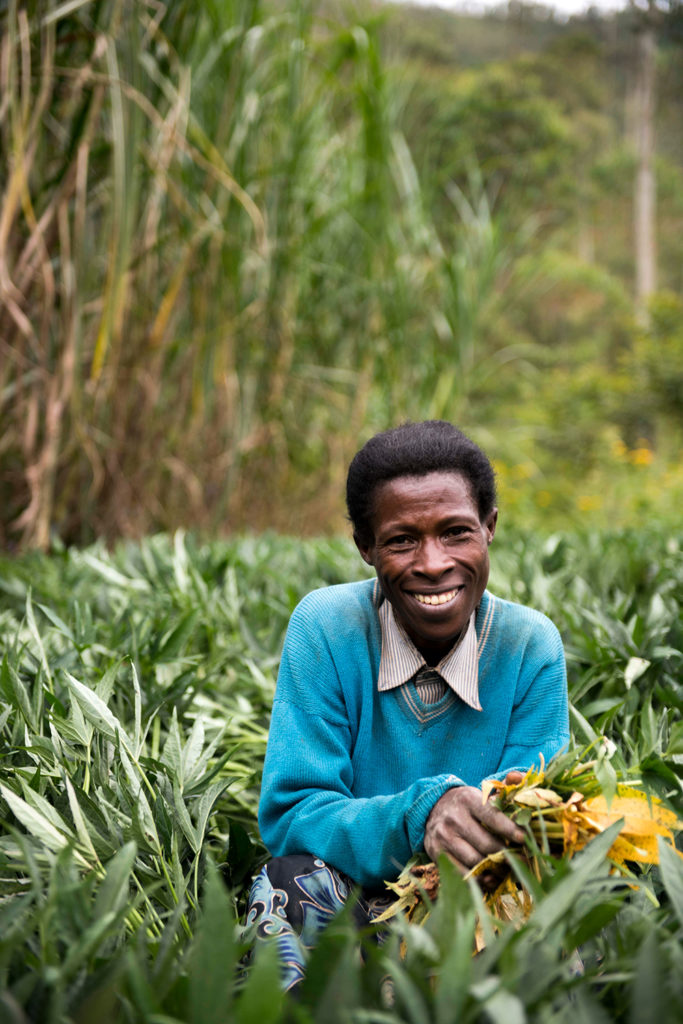
The smile you see on Vestina Nzagezahe is one of pride. “Selling the vines and roots has helped me to pay for my son’s education,” she says. A huge boon to farmers is that the OFSP varieties that CIP distributes are early maturing. “In three months a farmer can harvest their sweetpotato,” Vestina says. Covering secondary school fees for a child is often cost-prohibitive. Improved OFSP varieties that produce healthier harvests than traditional sweetpotato varieties also yield more roots for food, giving farmers a surplus to sell to add to the household income. Vestina’s son just completed high school, thanks to OFSP and Vestina’s hard work.
During the Kigali Nutrition Week organized by the City of Kigali and CIP, 457 farmers received orange-fleshed sweetpotato vines to plant. Getting planting material for nutritious, high-yielding varieties into the hands of as many farmers as possible is critical to meeting the growing demand for OFSP. Vine distributions provide farmers with disease-free planting material for improved varieties that are resistant to pests and disease, and will produce higher yields in a shorter time than traditional varieties. Vine recipients are also taught best farming practices and the nutritional benefits of a diet rich in vitamin A.
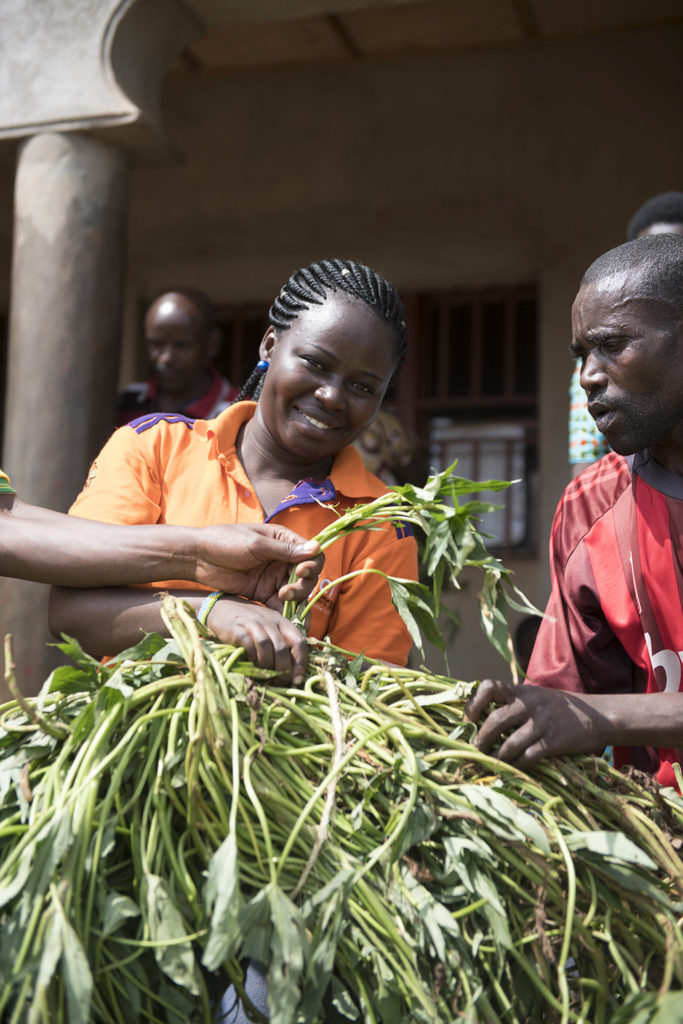
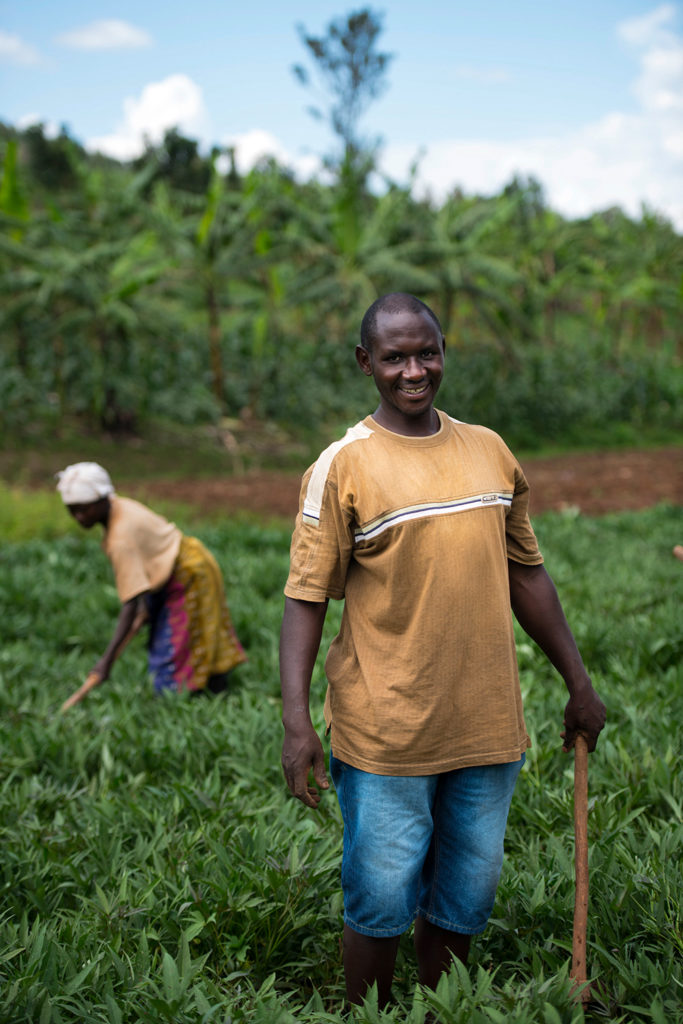
At the heart of CIP’s success at scaling up sweetpotato in Rwanda is a network of 79 decentralized vine multipliers (DVM) like Jean-Claude. “I multiply high quality orange-fleshed sweetpotato seed,” he says. “I sell it to local people and other people who can then sell it to earn income.” Local vine multipliers like Jean Claude help to break seed bottlenecks by providing farmers who used to have to travel great distances to purchase planting material with quality OFSP vines. “In the past, farmers used to grow sweetpotato varieties that were not productive and prone to diseases. But now, with OFSP DVMs who multiply good quality seed free from disease, farmers are able to get higher yields,” he says. Due to high demand for OFSP vines, Jean-Claude has become an employer enlisting the help of neighbors to tend to his vines.
Orange-fleshed sweetpotato is really the color of health. After their very first OFSP harvest, Triphine and her husband Jean, earned enough money to buy a cow. From that cow they are now able to get milk that provides another source of nourishment for their family. Earnings from subsequent harvests have helped Triphine’s family pay for the required household national health insurance. Households often struggle to make this payment, and failure to do so can result in medical bills that are financially debilitating for poor families. Thanks to their insurance policy, Trephine and Jean no longer need to worry about how they will cover the cost of healthcare if someone in the family falls ill.
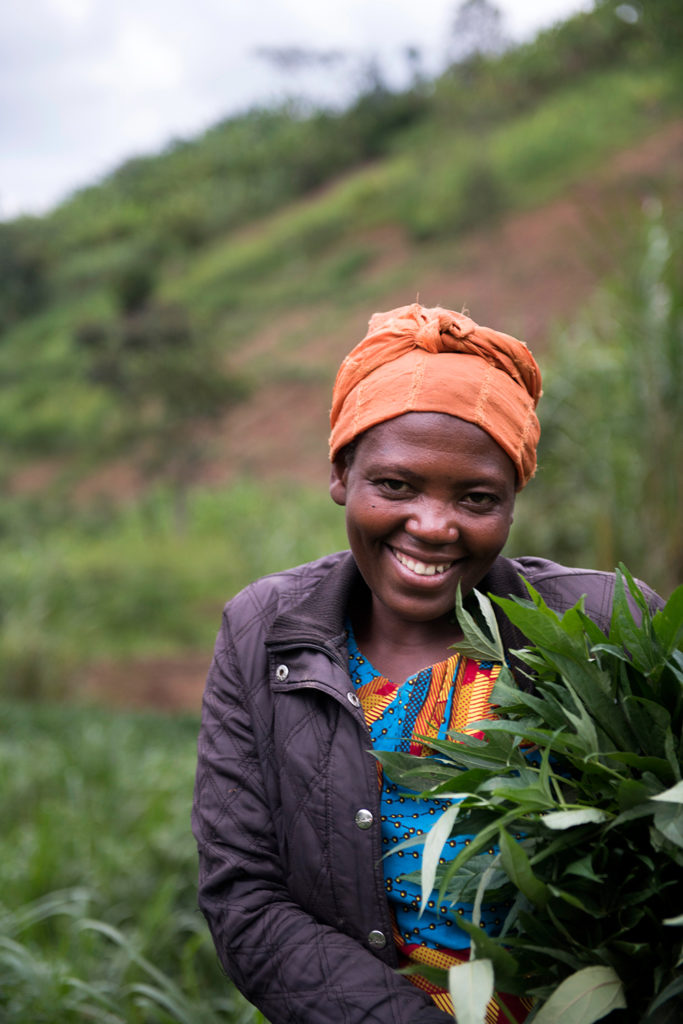
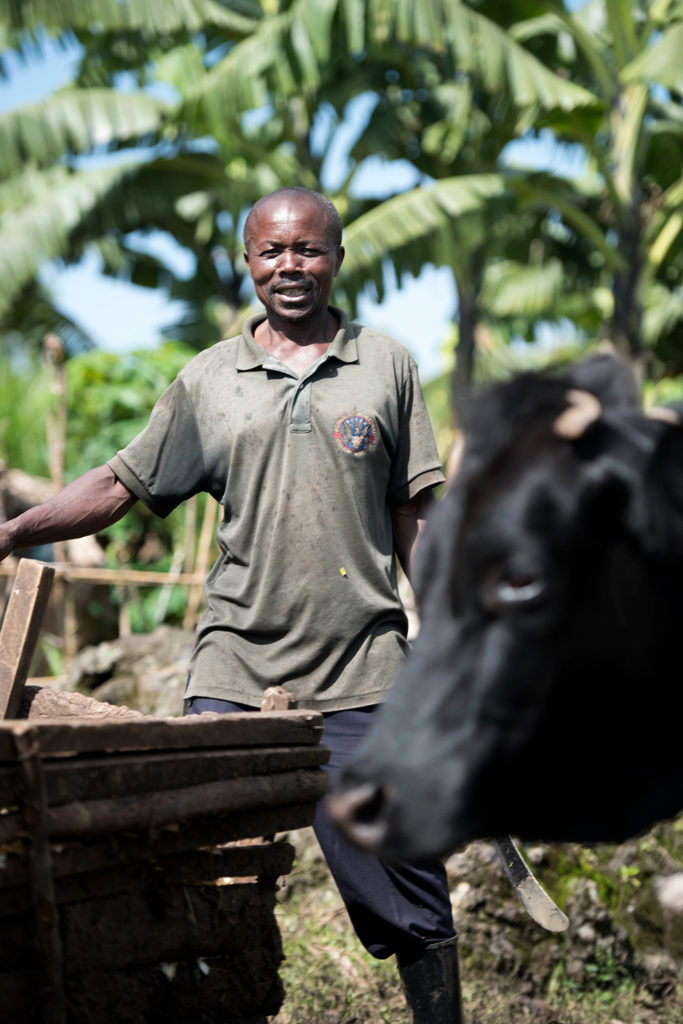
Decentralized Vine Multiplier Emmanuel Habimana knows firsthand the versatility of OFSP. Sweetpotato is generous by nature— the entire plant can be consumed. Two months after planting, the leaves can be eaten. After three and a half months, the roots will start maturing, providing more food. Damaged roots and vines left over after the harvest make excellent animal feed. In Rwanda, the typical farmer cultivates a plot that averages 0.7 hectares. Growing enough feed for livestock can be very difficult because the same land must produce enough food for the family. The fact that the harvested vines and some roots can be utilized as animal feed is very good news for Emmanuel’s growing herd of livestock. “I have bought goats, pigs, and a cow in the two years I’ve worked as a DVM. I can earn around 400,000 RwF (US $ 472) within a season from selling OFSP roots” says Emmanuel.
CIP is committed to empowering women in agriculture. Margaret Muhayimana, a member of the Kotemu farmers group, is dedicated to helping farmers and consumers discover the benefits of eating OFSP. On any market day, you will find Margaret offering OFSP samples to would-be customers from as early as 7 a.m. Consumers are accustomed to the more common, less nutritious white and yellow-fleshed sweetpotato varieties. With each sample offered, Margaret and her Kotemu colleagues, explain the benefits of OFSP consumption to combat vitamin A deficiency and malnutrition. CIP supports the members of KOTEMU with planting materials and knowledge of the best farming practices to maximize yields on their limited farmland.
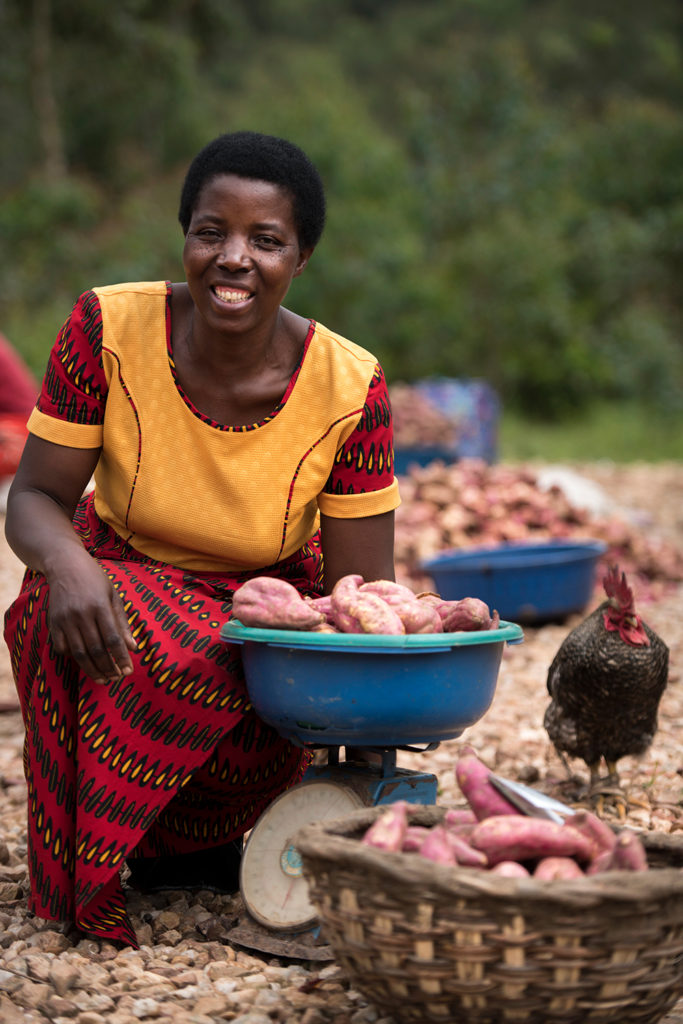
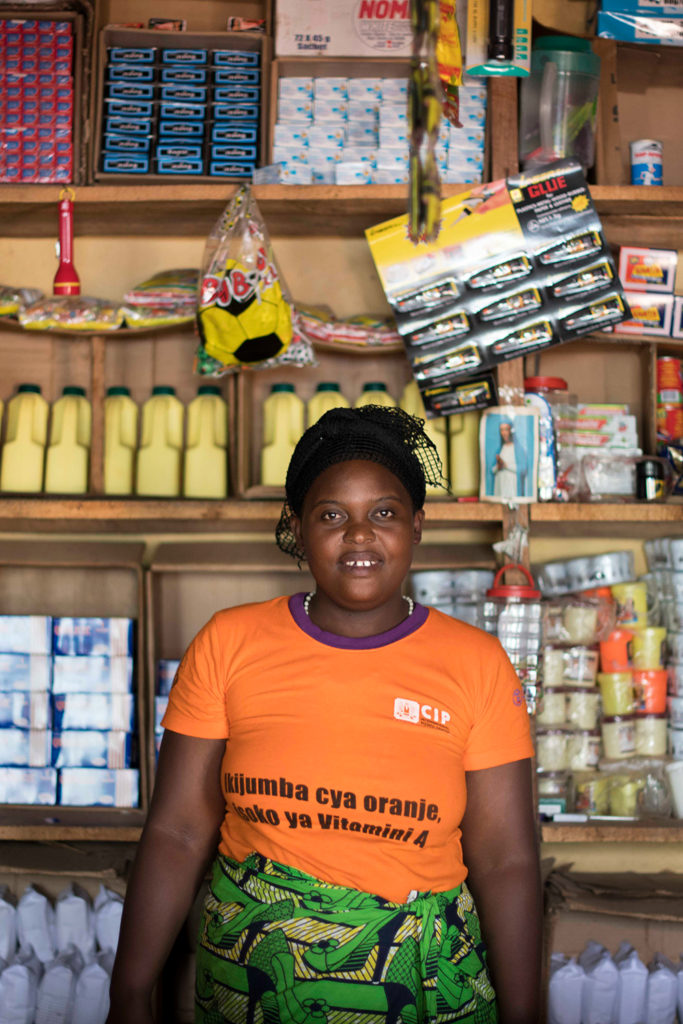
For Jeanne Mukasine, working as a decentralized vine multiplier has helped to diversify her family’s business holdings. Through the sale of OFSP vines, she and her husband have been able to open up a small shop in their town of Gakenke, in Northern Rwanda. The additional income provided by OFSP not only helps stave off hidden hunger, it also helps build financial security and provides farmers with the means to invest in their children’s education, or to purchase livestock. Raising livestock can provide extra income and diversify a family’s diet with an additional source of protein, while delivering the capital they need to explore new business opportunities.
Expectant mothers and mothers with children under 2 receive a nutrition lesson during the Kigali Nutrition Week and Innovative Urban Farming Campaign. The mothers learned how to prepare a balanced meal to help their children grow healthy young minds and bodies. The first 1,000 days, from conception to age two, is the critical developmental window that can determine a child’s lifelong success. CIP targets this age group by focusing on expectant and new mothers and providing them with the information they need to give their children the best possible start in life. A key lesson is that the vitamin A, which a child needs to be healthy, can be easily grown with Orange Fleshed Sweetpotato.
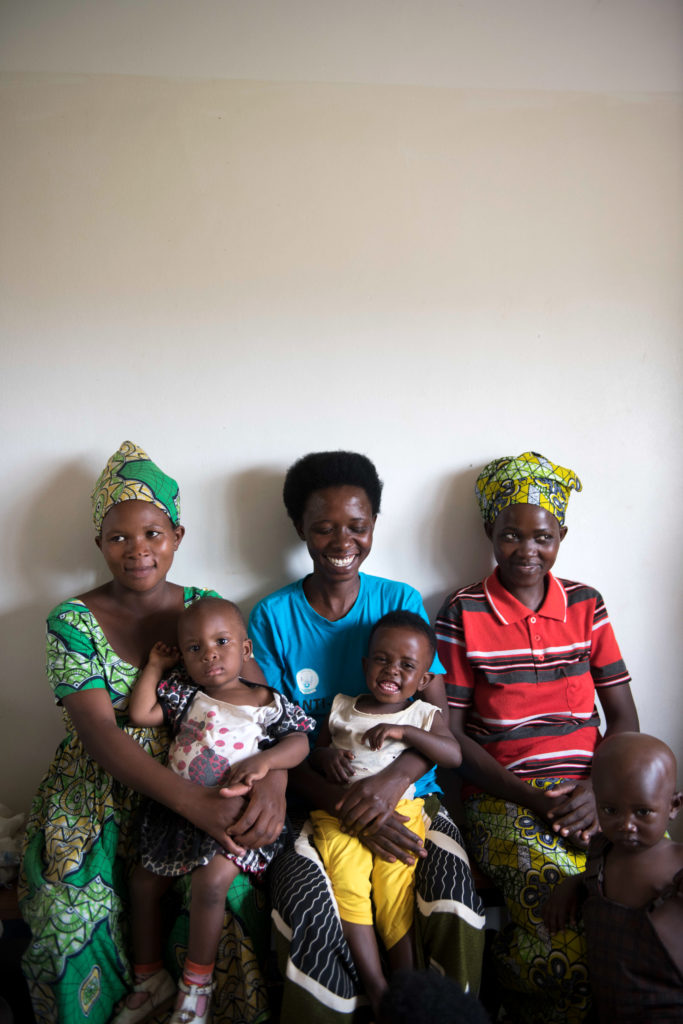
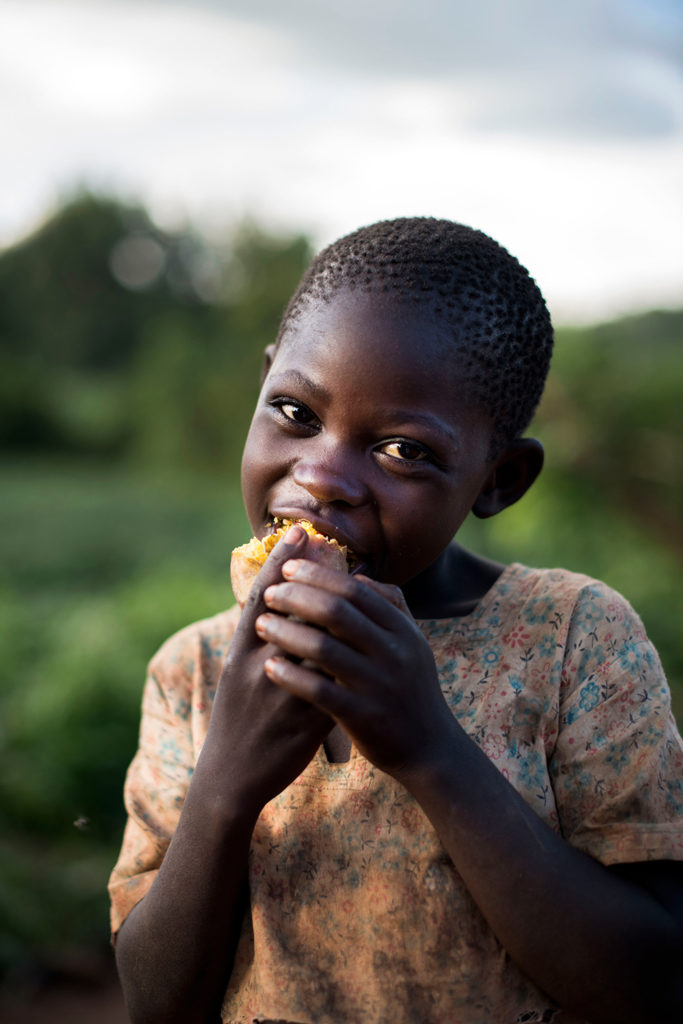
OFSP makes childhood a little sweeter. Its high vitamin A content helps fortify young bodies against the ravages of one of the most pernicious forms of hidden hunger: vitamin A deficiency. As little as 125 grams a day can provide enough vitamin A to protect a child under five from blindness, stunting, illness, and even early death. It is also important for cognitive development at the early part of life. So a small investment in promoting OFSP can help children stay healthy and grow into adults who will thrive and contribute to their country’s development.
